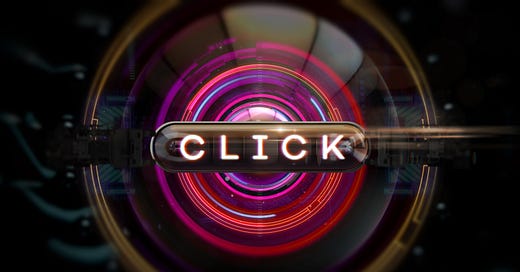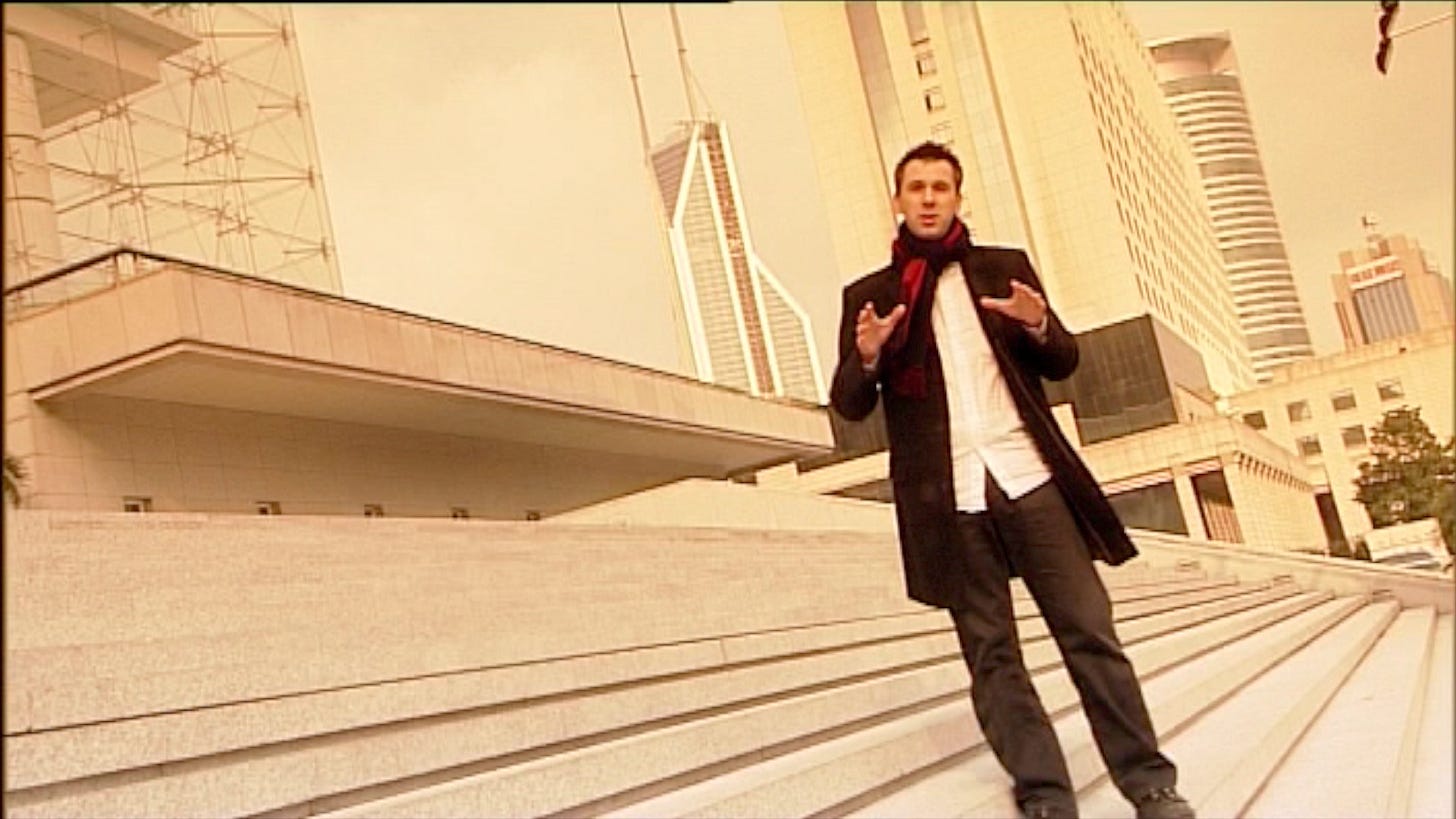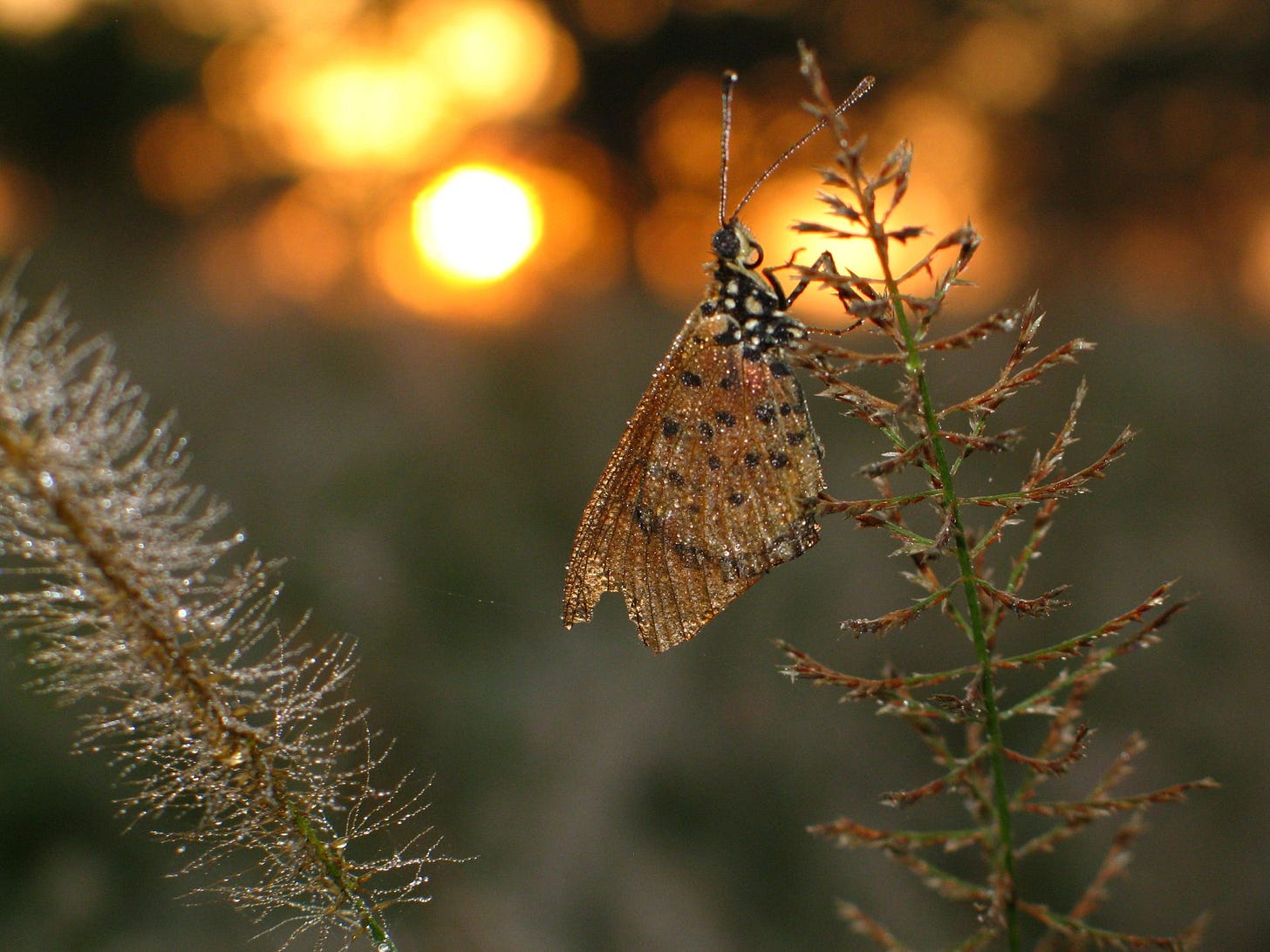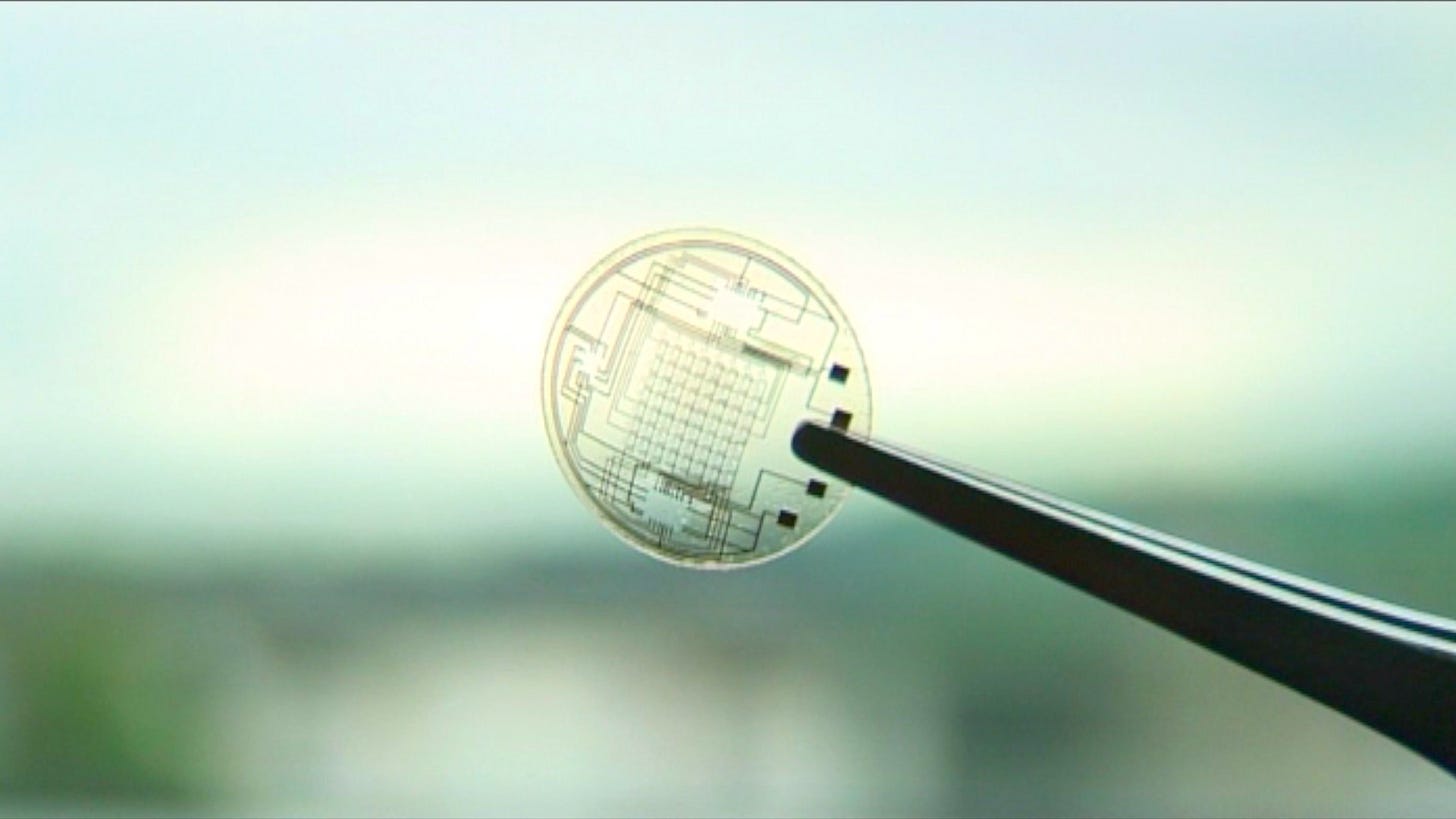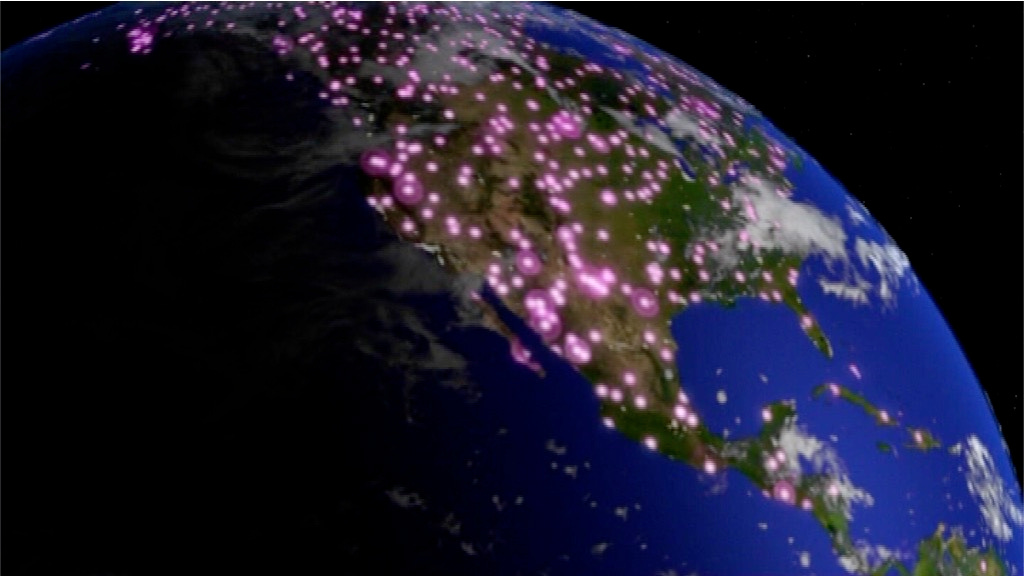“Can you get them to hold the plane? I’m nearly there!”, I call into my phone.
Okay, I am stressed now. All throughout my nightmare drive to Heathrow, at every traffic jam, I’d remained calm. It’s fine, I‘ve built in enough time for a couple of delays, I kept telling myself.
But after those couple of delays were followed by a couple more and I’ve finally parked in the long stay car park, the transfer bus is also stuck in traffic, and the flight leaves in 1 hour 15 minutes.
“I’ll ask them at the gate”, comes the reply from Click’s then-boss Richard Taylor. We both know that this will be useless, but I thank him anyway.
The bus is still not moving and so I explain my situation to the driver. I ask if it might be quicker for me to get off here and walk (run) to Terminal 3. He points down a service road, wishes me luck, opens the doors, and I explode from the vehicle like an action-movie hero bursting through the barn doors in a jeep, guns blazing, just in time to save the world.
In my mind.
Actually I collapse onto the road with my over-packed suitcase and rucksack, load them onto an abandoned luggage trolley and peg it. At one point I perform an impressive jump over a kerb, at which point I hear the trolley chassis crack. No matter, I’m nearly there. I can see the doors.
As I spot the check-in desk, I slow down, and try to look casual. After all, the last thing I need now is to be surrounded by armed security ordering me onto my knees, while an alsatian takes down my particulars.
I saunter up to the check-in assistant and explain that I’ve had a bit of a rough journey, hence the panting and a covering of sweat so heavy it looks like I actually swam here. But, I cheerily point out, there’s still 55 minutes till the flight departs and I’m with the BBC and the rest of my crew are already through, and so hopefully… What’s that? Check-in closed five minutes ago?
The airline was kind enough to book me on the same flight the following day, so I called Richard, apologised profusely, and made my way back to my car and back home, with my tail between my legs.
This was the last flight I ever missed. The year was 2005. And I was supposed to be flying to China to present my first ever episode of Click.
I’d joined the programme as a reporter/producer/director/camera operator/editor (we all did a bit of everything - that’s how the programme survived for so long) two years previously, but this promotion, to be the face of the BBC’s weekly, international flagship technology programme was a dream come true.
When I say weekly, I mean weekly. We were on-air every week of every year, clocking up 1296 episodes before, two weeks shy of its 25th birthday, it came to an end.
Click has been a massive part of my life - it’s taught me an awful lot about how TV works, how media works, how to tell compelling stories, how not to do PR, how to give good interviews - to the point where I’m looking forward to teaching others about all of it. (if you’re interested, give me a shout).
I’ve seen dozens of countries and experienced at least as many cultures.
But most of all, it’s given me so many amazing memories, so many stories, and a pretty long-view on technology and innovation. In fact this is what I’m asked to talk about most at events around the world.
A thousand lessons
I could tell you a thousand stories, but below is a tiny fraction of the programmes of which I am most proud, along with a life lesson from each, which has made me a more confident/patient/trickier/cynical/prepared* person.
*delete depending on who you are
296 - China
This was a real lesson in how skewed my view of other countries was. We talk about how the media in certain other countries manipulates or restricts its citizens’ view of the world., but I hadn’t realised that that applies to us in the UK too. I had expected China to be a place of paranoia, of repression, of a strong state presence on every corner. But it didn’t feel like that at all. The people walked with a swagger. There was a confidence about the place.
Admittedly that was 2005. I can’t wait to go again, to see how reality correlates to reporting next time.
Lesson: Visit as many places as you can.
366 - South Africa
In order to test different digital cameras, it was editorially imperative that we went on a Bush Safari. Problem is we made so much noise while trying to set up our shots that we scared everything away. Instead of the Big Five, all we got was the Tiny One. Nice shot though.
The following morning I emerged from my cabin to see a monkey staring down at me from a tree, chewing on what seemed to be a pink sugar sachet. As I wondered where it might have found such a manmade sweet treat, Richard comes rushing through the trees, crying “Spen, my cabin’s been burgled! The whole place has been ransacked!”
Lesson: Lock your doors, the monkeys are smarter than you.
367 - Namibia
Possibly the most beautiful location in the world. The Namib desert had just three colours - red sand, yellow scrub, blue sky. It was silent. The stars in the night sky were clearer than I thought possible. I felt like I was filming on Mars.
Lesson: Take a moment, as often as you can, to savour where you are.
422 - Seattle
We were invited, along with other press, to visit a well-known technology company, see their research labs, interview their execs, and explore their campus. However, when we arrived, it became clear we were really there to hear about the launch of just one new product - and not an interesting one at that.
The research labs weren’t expecting us and wouldn’t let us in (since everyone inside was working on new secret stuff), and we were asked to move on by their security guard when trying to film outside. No-one knew anything about the access we’d been promised by the UK-based PR person - who, as it happens, hadn’t come on the trip.
After a day of trying to negotiate even the minimum level of access, we politely withdrew, called up the University of Washington, and went and filmed their augmented reality contact lens instead.
Lesson: If the PR person who promised you the good stuff isn’t on the plane with you, have a spare story up your sleeve.
462 - Botnet
I first suggested my crazy idea to Richard in a grotty diner in Las Vegas. It was all very well telling our audience about the dangers of having an unsecured computer, I told him, but it would be so much better if we could demonstrate how it works on TV. I wanted to buy a botnet - a network of thousands of compromised zombie computers - and use them to take down the BBC website.
It took some time, and some slight tweaking of the plan, but we finally did what no-one had ever done before. We were able to demonstrate how easy it was to control tens of thousands of PCs, to send spam, and to perform a DDoS (distributed denial of service) attack on a willing volunteer company (the BBC weren’t up for it themselves, obvs).
After which we ordered the botnet to self-destruct, releasing all the computers from servitude, and advising their owners to get some anti-virus software.
Lesson: Your computer could be doing bad things right now, and you wouldn’t even know it.
To be continued… Part 2 should be in your inbox now.


